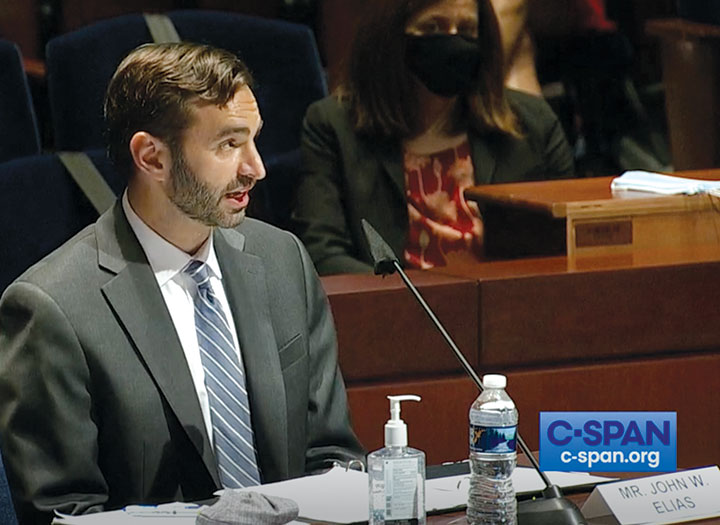People tend to think of the cannabis world as populated mainly by liberals. Most pot people do lean liberal. But the truth is that every political worldview is represented in weed.
Even MAGA: over the weekend, Andrew Kyle of Dallas, who identifies himself as a “cannabis expert consultant” on LinkedIn, posted on that site: “Lots of blame for the rising China virus cases. Yet no one seems to blame the protests and riots.”
Leaving aside the total lack of evidence (and some preliminary countervailing evidence) that “protests and riots” are responsible for the rising numbers of Covid cases, Kyle’s reference to the “China virus” caught the attention, and the ire, of another cannabis consultant, Jacqueline McGowan, who works as a lobbyist in Sacramento for K Street Consulting.
“Did you seriously call it the China Virus?” she asked Kyle.
His response was to refer to a conspiracy theory that Covid-19 was developed in a Chinese lab as a bioweapon and to declare: “Chinese live in China but China is not the home of all Chinese so it is not racist.”
“Maybe not,” McGowan retorted, “but you clearly are.” Mic drop.
Most people in the pot world with a conservative bent tend to identify as “libertarian.” The old joke has it that libertarians are just conservatives who want to smoke weed, and there’s some truth to that. But there’s also truth to the fact that the government’s decades-long crackdown on pot smokers has created an anti-government bent among many people who grow, sell and use cannabis.
That explains why even some self-identified liberals also self-identify as “libertarian.” Among them are people—whom you would never suspect of having Republican leanings—having said things like “maybe we should give Trump a chance,” based on a few positive remarks Trump made about legal weed.
Some applauded when Trump canned his attorney general, Jeff Sessions. Because Sessions was an anti-pot warrior, his ouster was considered a victory, though it had nothing to do with cannabis. The fact that Trump fired him out of spite because he recused himself from overseeing the Mueller investigation made little difference to the people who pumped their fists. And the fact that Trump wasn’t likely to replace him with a pro-cannabis nominee didn’t seem to matter, either.
Predictably, Trump did not choose a pro-pot nominee for the role. He nominated William Barr, who proceeded to corrupt the Department of Justice to a degree never before seen. John Elias, a high-ranking DOJ official, testified last week that nearly 30 percent of all the antitrust probes conducted by the DOJ under Barr targeted marijuana companies.
Among the targets was the planned 2019 merger of MedMen and PharmaCann. MedMen is widely disliked, even by many in the industry. It was, until recently, run by a couple of insufferable weed bros who spent lavishly on themselves and on the company, to MedMen’s near-demise
The consolidation of the young pot industry has been a worry since before states started legalizing adult use. Many smaller businesses, and people simply concerned about the overall health of the industry, are terrified that “Big Pot” will wreck the whole thing. It’s arguable whether the merger would have contributed much to that developing problem, or whether it would have passed muster under an honest, fair-minded probe. But if Elias’s testimony is accurate, this was a political vendetta, pure and simple. “The rationale” for the probe was “centered not on an antitrust analysis, but because [Barr] did not like the underlying nature of their business,” Elias testified.
If that was indeed the case, Barr was successful, even though the investigation was dropped last fall and no enforcement action was taken. But while it was underway, MedMen’s stock price dropped by more than a third. In the end, the merger was called off, with the companies citing regulatory delays.
Supporters of the cannabis industry might want to take heed: taking stances based on a single issue is almost guaranteed to lead to trouble.



